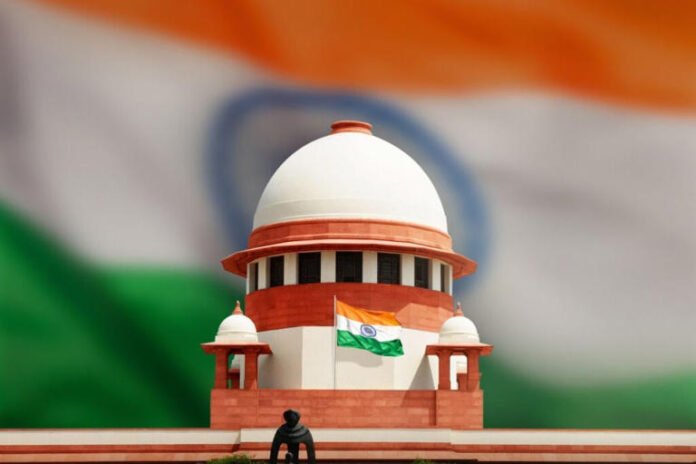The Supreme Court of India has raised serious concerns over the misuse of Section 498A of the Indian Penal Code (IPC), a law designed to protect married women from cruelty by their husbands and in-laws. The ruling follows a tragic incident involving Atul Subhash, a 34-year-old tech professional from Bengaluru, who died by suicide after facing harassment and false accusations from his estranged wife and her family. His death has triggered widespread outrage, highlighting the complexities of marital disputes in India.
The Atul Subhash Case: A Heartbreaking Tragedy
Atul Subhash, a software engineer, took his own life after enduring immense pressure from legal battles initiated by his wife. He claimed that his wife and her family had filed baseless cases against him, accusing him of financial extortion and harassment. These allegations, along with the strain of ongoing legal proceedings, overwhelmed him, ultimately leading to his tragic decision.
Atul’s death has sparked a nationwide conversation about the emotional and psychological toll that such disputes can take on individuals. His case has shed light on how marital conflicts, when paired with legal challenges, can have devastating consequences.
Supreme Court’s Observations on Section 498A
In a recent ruling, the Supreme Court dismissed several cases filed under Section 498A, expressing concern over the increasing misuse of this provision. The court noted that while the law was intended to protect women from domestic cruelty, it has increasingly become a tool for personal revenge in matrimonial disputes.
Justices BV Nagarathna and N Kotiswar Singh pointed out that vague and generalized accusations often lead to the wrongful use of legal processes, turning them into “arm-twisting” tactics in marital conflicts. They emphasized that such misuse not only harms the accused but also undermines the integrity of the legal system.
Highlights from the Supreme Court Ruling
Misuse of Legal Provisions
The Supreme Court observed that Section 498A, originally designed to safeguard women from genuine abuse, is being weaponized in some cases for personal vendettas. This has diverted the law’s purpose and caused serious consequences for both the accused and the broader justice system. The court stressed that laws meant to protect vulnerable individuals must not be exploited for personal gain.
Need for Scrutiny and Evidence
The justices highlighted the importance of verifying claims made under Section 498A. They pointed out that merely naming family members without substantial evidence cannot justify criminal prosecution. The court urged a more cautious approach, emphasizing the need for concrete proof before serious charges are filed. This would ensure that justice is delivered fairly and that individuals are not wrongly accused or harmed by baseless claims.
Rise in Matrimonial Disputes
The court also observed that there has been a significant rise in matrimonial disputes in India, which has led to an increase in false or frivolous complaints under Section 498A. These growing numbers of unwarranted accusations not only harm the accused but also risk eroding public trust in the judicial process.
Implications of the Ruling: A Call for Reform
This ruling marks a critical moment in how marital laws are interpreted and enforced in India. The Supreme Court’s decision aims to strike a balance between protecting women from real cruelty while preventing the exploitation of the law for personal reasons. The judgment is expected to influence future cases involving similar allegations, encouraging a more responsible and evidence-based approach.
The Supreme Court’s comments also indicate the need for reforms in the way matrimonial disputes are handled by the legal system. Stricter standards of evidence, thorough investigations, and more careful scrutiny of accusations can help ensure that the law serves its intended purpose without being misused.
The Path Forward: Ensuring Justice for All
While the misuse of Section 498A is a concern, many believe that the law should not be diluted or weakened. Instead, there should be greater efforts to prevent its abuse, such as implementing stronger checks and balances during the legal process. The Supreme Court’s ruling serves as a reminder that both the accused and the accuser must be treated with fairness and respect.
The legal system must maintain its commitment to justice, ensuring that laws meant to protect the vulnerable do not become tools of manipulation. By encouraging more responsible use of the law, and ensuring that each case is thoroughly examined, India can move toward a more balanced and fair approach to marital disputes.
A Tragic Reminder of the Need for Judicial Prudence
Atul Subhash’s tragic death serves as a stark reminder of the dangers of unresolved marital conflicts and the potential for misuse of legal provisions. As the legal system continues to evolve, it is essential to safeguard both the rights of women and the fair treatment of all individuals involved in legal disputes.
The Supreme Court’s ruling, while addressing the issue of misuse, calls for greater scrutiny and judicial accountability. Only by striking a fair balance can we ensure that laws like Section 498A continue to serve their intended purpose without being exploited for personal gain.



